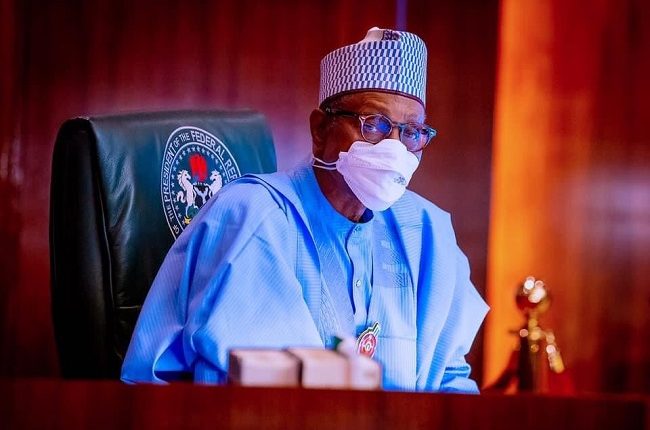How poor Nigerians will fund newly signed health insurance scheme
President Muhammadu Buhari recently signed the National Health Insurance Authority Bill 2022 which replaces the National Health Insurance Act 2004. According to the president, “The law has made provision for a trust fund to ensure the coverage of 83 million poor Nigerians who cannot afford to pay premiums.” 2023: Court of Appeal president wants expeditious […]

President Muhammadu Buhari recently signed the National Health Insurance Authority Bill 2022 which replaces the National Health Insurance Act 2004.
According to the president, “The law has made provision for a trust fund to ensure the coverage of 83 million poor Nigerians who cannot afford to pay premiums.”
- 2023: Court of Appeal president wants expeditious hearing of election matters
- IPOB kills woman, 4 kids, 6 other northerners in Anambra
The law also stipulates that the vulnerable group trust fund is money budgeted to pay for healthcare services for Nigerians who cannot pay for health insurance in a bid to subsidise the cost of provision of the services to the less privileged people in the country.
It says the Vulnerable Group Fund will subsidise the provision of healthcare to children under five, pregnant women, the aged, physically and mentally challenged, and the indigent as may be defined from time to time.
However, Daily Trust findings show that proceeds from the new telecommunication tax imposed on telephone calls by the federal government are what will be used to fund the free healthcare scheme for vulnerable people.
How telephone calls will be taxed
Information available to Daily Trust shows that the telecom tax will be equivalent of a minimum of one kobo per second for phone calls.
The new law includes a provision under Section 26 subsection 1c which states that one of the sources of money for the Vulnerable Group Fund shall include a telecommunications tax, not less than one kobo per second of GSM calls.
Other sources of funding stated in the act include a “basic healthcare provision fund to the authority; health insurance levy; telecommunications tax, not less than one kobo per second of GSM calls; money that may be allocated to the Vulnerable Group Fund by the government; motley that accrues to the Vulnerable Group Fund from investments made by the Council: and grants, donations, gifts, and any other voluntary contributions made to the Vulnerable Group Fund.”
A poverty and inequality report recently released by the National Bureau of Statistics has shown that about 40% (about 83 million) of Nigeria’s population lives below the poverty line of N137,430 (equivalent of $381) per year.
By implication, it entails that about 83 million poor Nigerians will be directly involved in funding the provisions of the Act through phone calls.
Similarly, the Nigerian Communications Commission (NCC) has said Nigerians made 127.44 billion minutes of calls in 2020. This translates to about 8.7 trillion seconds of calls, meaning the new tax will generate 9.05 trillion kobo, which converts to N87.49bn, annually.
This is just as telecom companies wrote to the federal government, through the NCC on the proposed increase in voice calls charges. Nigeria currently has about 197 active mobile telephone users according to the NCC.
Implications
According to NOI Polls, 8 out of 10 Nigerians pay out of pocket for health care. This entails more financial burden on ordinary Nigerians if the law is implemented as they will finance the trust fund as enshrined in the law through a new telecommunications tax charged on phone calls at not less than one kobo per second of GSM calls.
Also, with an average call rate of 11 kobo per second, the new law implies at least nine per cent charge on every second of phone calls in the country. In fact with the coming of the law, Daily Trust projects that there may be a surge in call tariffs as telecommunication companies are likely to transfer the cost onto customers.
Recall that telecoms companies had in April proposed a 40 per cent increase in call and SMS tariffs, citing the rising cost of operations and inflation as major drivers for the hike.
The companies said the fee for calls would increase from N6.4 to N8.95 while the price cap for SMS will increase from N4 to N5.61
